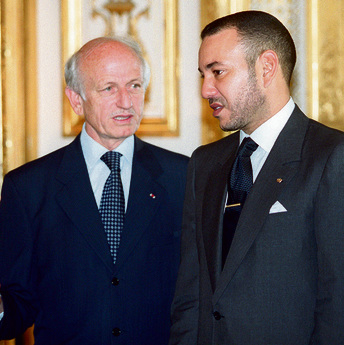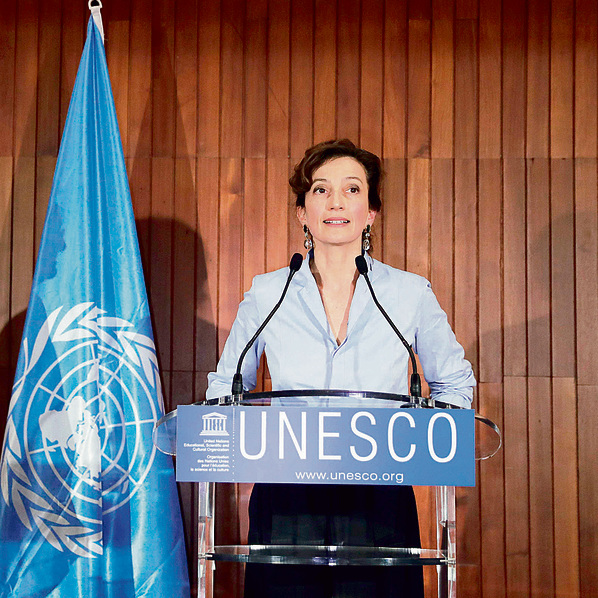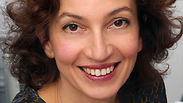

Can UNESCO’s new Jewish head change agency’s anti-Israel bias?
She grew up with the sounds of muezzins, church bells and synagogue melodies. As a Jew in Paris, she first encountered anti-Semitism during university. She is fiercely protective of her privacy, and her nomination for UNESCO director-general irritated quite a few people. But does Audrey Azoulay have what it takes to appease the US and save the faltering UN agency from collapse?
The next morning, the skies of Paris were filled with dozens of parachutes of senior advisors and ministers, urgently searching for a prestigious landing spot before the change of government in May 2017. Culture Minister Audrey Azoulay was not seen among those abandoning the ship.
Several months later, right before he retired, Hollande suggested her as a last-minute nominee for director-general of UNESCO, the United Nations agency in charge of preserving heritage and promoting culture and education around the world, an organization which many Israelis feel is focused on denying the Jews’ ties to Israel.
The race for the position soon turned into a diplomatic version of "Survivor,” including smear letters, surprising alliances, a major sponsor quitting the organization and suspicions of irregularities.
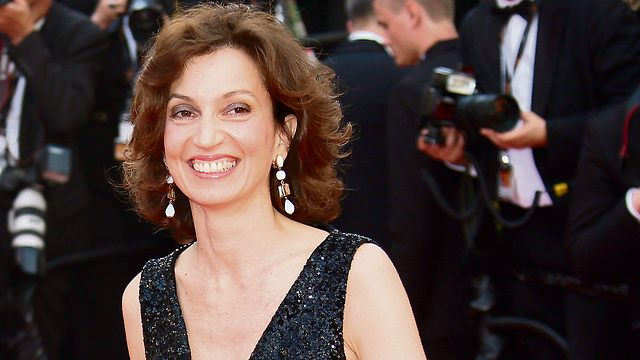
At the center of the drama stood 45-year-old Azoulay, who survived all episodes: Last Friday, she defeated her Qatari rival, Hamad al-Kawari—who had dreamed about the position for years and had invested a fortune in his campaign—by two votes.
The final, decisive mission still remains: To get through November 10, when the organization’s 195 members convene to approve the appointment. Until then, Azoulay is avoiding giving any interviews, and her associates are keeping a low profile too.
“She doesn’t have to give anyone cause to reopen the election process,” explains Israel’s Ambassador to UNESCO Carmel Shama Hacohen. “If only two countries ask for a re-vote at the General Assembly, everything could change.”
This discreetness, which has characterized Azoulay throughout her meteoric career, turns her into a fascinating figure in France and elsewhere.
Morocco, where the heart is
The newly elected UNESCO director-general was born in 1972, the youngest of the three daughters of Katia Brami and André Azoulay. Her father, a Jewish banker and journalist of Moroccan decent, served as a senior advisor to King Mohammed VI of Morocco and previously advised Mohammed's father, King Hassan II. He also advised former Israeli President Shimon Peres on matters related to the Arab world.
The father and daughter attended Peres’ funeral separately: He arrived as a representative of the Moroccan king and she came with the French president as the culture minister.
Audrey’s mother is a well-known figure as well in Moroccan cultural life. She wrote two books, with two childhood friends, praising the city of "Essaouira (Mogador), where she was raised and met her husband.
Audrey and her sisters, Judith and Sabrina, where born in Paris, where the family had moved to. In a rare interview to the JDD weekly after being appointed minister, Azoulay said her parents “made their children and their careers in France.” She grew up in the bourgeois Beaugrenelle district in the 15th arrondissement of Paris, not far from the UNESCO headquarters, and went to a public school.
“My best friend was Japanese and the next one was from New Zealand. My sisters’ friends were Iranian,” she said in the interview, noting that her background never caused her any difficulties as a child and teenager. “I don’t have a single memory of an anti-Semitic experience,” she said.
Her naivety ended when she entered the École nationale d'administration (ENA), which selects and undertakes initial training of senior French officials. “It was a shock,” she said. “I encountered strong ‘old France’-style anti-Semitism there.”
When she turned 20, her parents went back to Morocco. “I spent a lot of time there on vacations. My grandmother lived there. It’s the land of heart, flavors and music,” she once said in an interview. “My roots were in France, I didn’t speak Arabic. It’s a richer identity, and France completely allows it.”
About a month ago, in an interview to the Young Africa weekly, she added: “I draw my force from my private history, from my connection to Morocco, to the Arab world and to Africa. The lullabies of my childhood are the sounds of the muezzin, the bells of the Montparnasse churches and the synagogue melodies. I plan to enlist this wide range to serve my activity at UNESCO.”
Azoulay grew up in “a very left-wing milieu,” she said. A social left and “a political left, focusing on the Israeli-Palestinian conflict.” At the age of 15, she went out to protest with friends from high school against the radical right. “At the time, it was fascists against anti-fascists. In my crowd, we were very anti-fascist,” she said.
“Audrey Azoulay is like her parents, intelligent and sharp,” says Lille Mayor Martine Aubry, former leader of the Socialist Party, who has known her since childhood. “She has a real and open smile, and intellectual and personal elegance in her relations with others.”
This depiction of intelligence and a humane approach is repeated by anyone willing to talk about Azoulay, alongside “an ability to make decisions without any hesitations,” according to a close friend who worked with her at the National Cinema Center and asked to remain anonymous.
Isabelle Giordano, a highly respected journalist and managing director of the UniFrance organization, which is in charge of promoting French cinema throughout the world, describes Azoulay’s ability “to learn and understand new issues and complex problems quickly and with great sensitivity, including complicated issues like market economy or issues of racism and intolerance. She’s an incredibly good negotiator and a very hard worker. She can work for hours: When we traveled to Mexico together, she brought a pile of files to the flight and diligently worked on them the entire time.”
Thanks to cinema
Azoulay, who says she used to spend hours in the library as a child, reading incessantly, and who describes her school years as “wonderful,” got the finest education: She has a master’s degree in management sciences from the prestigious Paris Dauphine University and a master's degree in business administration from Lancaster University. She also studied at Sciences Po, the school of France’s intellectual elite and is a graduate of ENA, like almost all leading politicians in France. She worked in a bank to fund her studies. “I hated it,” she admitted in an interview to the Le Parisien daily.
During her studies, she met her husband, François-Xavier Labarraque, a former manager at Radio France and currently a private consultant and lecturer on politics and culture management. They have two children, a boy and a girl, who have never been publicly photographed with their mother. As she is fiercely protective of her privacy, there are no available public photographs of Azoulay with her parents or sisters either. Both her sisters are also involved in culture management and production.
The serious course she has taken was violated once, in 2004, in a tiny guest appearance in a film with a sort of prophetic name, “Le Grand Rôle”: The story of a Jewish actor who dreams of appearing in an Yiddish-language Hollywood version of “The Merchant of Venice.” Azoulay plays the assistant director in the film and has only once sentence: “Mr. Grichenberg plans to revive the glorious tradition of the Yiddish drama.”
Her own first grand role arrived two years later, in 2006, at the National Center of Cinematography and the Moving Image (CNC), the most important public foundation responsible for the production and promotion of cinematic and audiovisual arts in France, which also funds and promotes project with partnering countries like Israel.
Azoulay began working there as the deputy director for multimedia affairs. A year later, she was appointed chief financial and legal officer, and in 2011 she was put in charge of the center, whose grants budget for 2017 totals 707 million euros. “Cinema is the field which helped me the most in building my professional identity,” she said in an interview. “The CNC is cinema’s driving system. It’s the entire system’s engine oil.
One of her achievements in that role was winning a battle against Hollywood, when she managed to dictate more favorable conditions for the distribution of European films in cinemas controlled by major American companies. She also met a highly regarded actress and independent film producer there, Julie Gayet, who later had an affair with Francois Hollande. This friendship paid off later on: President Hollande quickly took note of her skills, and in the summer of 2014 he offered her a job as special advisor on culture and media affairs at the Élysée Palace.
“For 15 months, she arranged meetings between the president, who is not a great fan of culture, and artists,” said Jean-Luc Martinez, president-director of the Louvre Museum. “She took him to shows, to exhibitions. She always lent an attentive and positive ear, a rare commodity in government circles.”
Family comes first
In January 2015, Azoulay was part of the presidential team forced to deal with the horror of the Charlie Hebdo and Hyper Cacher supermarket attacks. “I remember it had a great impact on her as a mother,” says a close friend, speaking on condition of anonymity.
At the end of that weekend, Azoulay explained to her children what had happened. “I told them that the terrorists attack different targets. The victims could have been other people, not necessarily the illustrators, the police or the Jews. Those who operate the terrorists kill Muslims in their countries every day,” she said in an interview to JDD. “My strongest memory is from when I explained to my children what happened during the Holocaust. They were in elementary school. It was the hardest thing for me to do.”
The balance between her demanding job and family life is one of the keys to Azoulay’s success. “She has brought the children to work with her many times, and family life is very important to her,” says the close friend. “She’s crazy about her children and is very attached to her parents too. She doesn’t want her entire life to revolve around her career.”
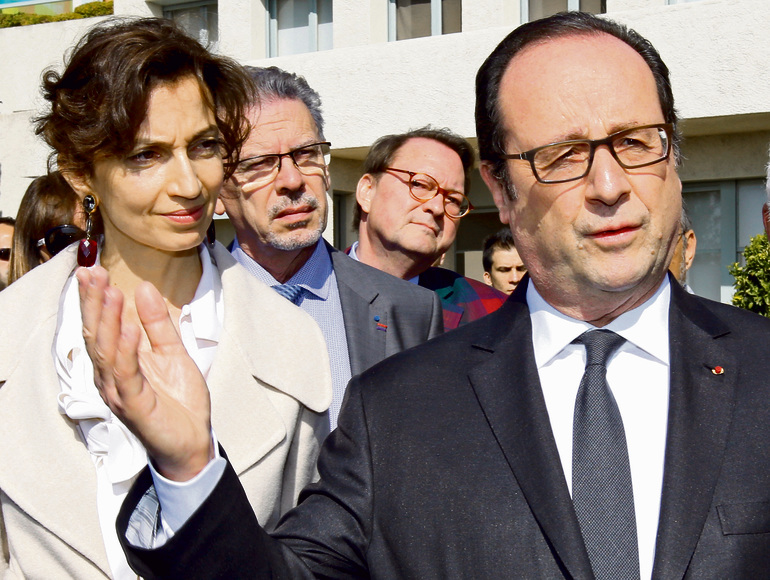
Azoulay was appointed culture minister in February 2016. President Hollande, whose popularity rating had descended to a new low at the time, decided to reshuffle then-Prime Minister Manuel Valls’ team for the seventh time, and Azoulay replaced Fleur Pellerin, whom she studied with at ENA. She received the nomination after it was rejected by three other candidates, including Anne Sinclair, ex-wife of former International Monetary Fund Managing Director Dominique Strauss-Kahn. Like in the case of an actress who wins an Oscar for a role rejected by a famous star, it paid off.
But not everyone was happy with the appointment. Some people claim Azoulay and another advisor to the president pushed Pellerin out, each for her own reasons. Others say she only got the job thanks to her close friendship with the president’s actress girlfriend, who had a lot to gain from having a good friend at the head of the Ministry of Culture. That may be why Azoulay tried to conceal the friendship, claiming that she and Gayet were simply “acquaintances.”
Senior Algerian government officials had trouble accepting the appointment too. They complained about the “Moroccanization of French politics,” although Azoulay doesn’t even have a Moroccan citizenship.
President Hollande’s announcement in late 2016, that he would not be seeking reelection, left the new minister very little time to stand out, but she used every minute of it: She managed to lift the automatic ban on under-18s watching films that include sex scenes (and irritate Catholic organizations), raise the culture budget to more than 1 percent of the state budget, and cooperate with UNESCO in a project aimed at protecting heritage sites in battle zones.
She also managed to return art looted by the Nazis during World War II to its Jewish owners and fund a search for heirs with the help of companies specializing in family history, as well as provide concert halls that were deserted after the Bataclan terror attack with 14 million euros in aid.
Some of her successes were concocted by her predecessors, but Azoulay demonstrated in her short term impressive management and execution skills that helped complete processes which had been had been subject to foot-dragging in the Ministry of Culture.
Giordano, her former colleague, isn’t surprised. “Audrey possesses sensitivity, intuition, psychological skills and a lot of personal charm and elegance,” she says, recalling an event she orchestrated with Azoulay as part of an NGO that organizes film screenings for residents of troubled neighborhoods in luxurious cinemas.
“We held a reception for 200 children who were running around screaming though the Ministry of Culture’s corridors. Audrey enjoyed every moment of it and posed for selfies with everyone. She knows how to talk to every person at eye level and is even attentive to people who are from the limelight. She has a great sense of humor, she laughs a lot and doesn’t like the solemn side of the respectable institution.
“She is an excellent example of modern France, which is proud of its roots and of its secularism, and which is not afraid of blending with Morocco. She serves as an example of a woman in a position of power and as an inspiring role model for all women.”
The battle over UNESCO
Although it was already clear at this stage that Azoulay was a particularly impressive woman, her nomination for the position of UNESCO chief, which was proposed by Hollande in March, surprised many people. It wasn’t just because Hollande knew the elections would be held after he left office, but mainly because the rest of the candidates had already launched their campaigns months earlier. Azoulay, however, accepted immediately.
Was she aware of what a great headache she was taking upon herself? Probably. The Paris-based organization, which was founded in November 1945, has been adorning itself recently with a number of votes that have more to do with politics than with culture or the preservation of heritage sites, including last year’s declaration denying the Jewish people’s connection to the Western Wall and to the Temple Mount, which is mentioned in the resolution in its Arab name only.
“UNESCO is the only playground where the Palestinians can beat Israel and the United States,” says Ambassador Shama Hacohen.
Can the fact that Azoulay is Jewish change that?
“Look, Azoulay is part of the Left, which isn’t always our most convenient partner for clarifying things with our neighbors. It could be a double-edged sword. On the one hand, every time she stands by Israel—concerning the holy sites, for instance—she will immediately be suspected of cooperating with us, so there’s a good chance she’ll try to prove her neutrality. On the other hand, both she and her family live within Jewish communities. If there are other radical resolutions like the ones on the Jewish people’s holy site, I don’t envy her or her family. It wouldn’t like to be in their shoes during synagogue encounters, for example.”
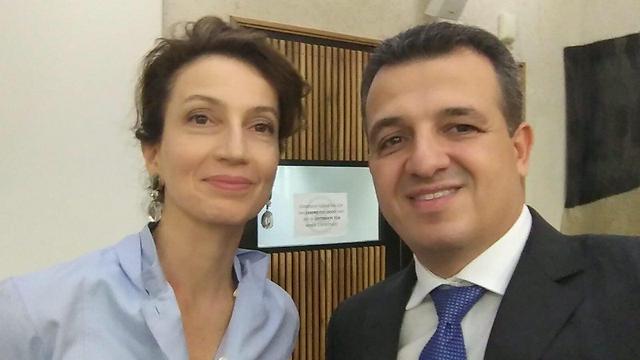
But before she was even able to face the difficulties involved in the position, Azoulay had to win it, and it wasn’t about to be easy. She had eight contenders waiting for her on the race track. For four of them—citizens of Qatar, Iraq, Egypt and Lebanon—her candidacy was a red rag. As far as they were concerned, it was their turn to head the organization. In early July, as many as 50 intellectuals from Arab countries signed a petition submitted to the French foreign minister, urging France to reconsider her nomination.
And if that were not enough, several days before the final vote for the organization’s leadership, a scathing letter sent to Azoulay by former Culture Minister Jack Lang was leaked to the website of French daily L’Opinion. “The expertise in which you appropriate the work of others is a masterpiece,” wrote Lang, who felt he hadn’t received sufficient credit for his contribution to the joint heritage site protection project, which Azoulay had won fame for. “You helped a little. Today, you take pride in the results,” he wrote.
It likely wasn’t just a grudge over lost credit that drove Lang to write the letter, but also the fact that he had competed for the UNESCO leadership himself and failed in the past.
But with all due respect to 78-year-old Lang, there are other key players in the story of UNESCO’s future: On one side stands the United States, which quit the organization several days before the elections over “the ongoing discrimination against Israel,” which is considering withdrawing from UNESCO itself. Moreover, the US—like Japan, Saudi Arabia, Iran and even Britain and Brazil, which owe the organization millions—the US owes UNESCO more than $500 million, after freezing support for the organization in 2011 following its admission of Palestine as a member. In other words, the new director-general will have to find a way to solve the dispute with the world’s strongest power.
Qatar stands on the other side. In June 2017, several countries—including Saudi Arabia, the United Arab Emirates, Bahrain and Yemen—cut off diplomatic relations with Qatar, accusing the country of “adopting terror organizations working to undermine the region’s stability.” The move was backed by Egypt and, of course, the US. That didn’t stop the Qatari candidate, Hamad al-Kawari, from pursuing his dream to win the position following a three-year campaign.
“There aren’t many world capitals he didn’t visit as part of his campaign,” says Shama Hacohen. While Azoulay’s campaign budget totaled 170,000 euros, al-Kawari reportedly spent the same sum per day.
The gossip in the UNESCO corridors is that the candidate handed out invitations to an all-inclusive stay in Doha. According to the Young Africa weekly, the invitation was accepted by 10 of 58 representatives. At the same time, the president of El Salvador endorsed the Qatari candidate in a rather puzzling move, considering the fact that representatives of Qatar’s water and electricity company visited El Salvador in 2013 to look into an investment of billions in the construction of a local plant.
The American withdrawal announcement eventually tipped the scales in favor of Azoulay: The other countries were afraid that the Qatari candidate’s win would thwart the possibility of the US returning to the organization and lead to the entire organization’s collapse. After six exhausting rounds, Azoulay was elected the new UNESCO director-general by a margin of 30-28 votes. If all goes as planned, she will replace Bulgarian politician Irina Bokova as the organization’s head in November.
What kind of director will she be? Successful, according to Giordano. “She is open and curious about the world’s cultures, aware of economic and diplomatic issues and a person who cares about education and culture. She has a strong political sense, but without cynicism.”
Azoulay’s close friend stresses her ability “to be direct and act without getting caught in consensus. Audrey has always been committed to public service. She has a proper cultural doctrine, she knows how to bring people together and finds it important to preserve and protect culture.”
“Her election could be a promising thing,” says Shama Hacohen. “It depends on her ability to fight, on whether she is prepared to experience unpleasant days and on whether she succeeds in enlisting supporting forces.”
There is no doubt that in UNESCO’s current situation, Azoulay will have to work very hard, and even pull a few tricks, to save this faltering institution.














